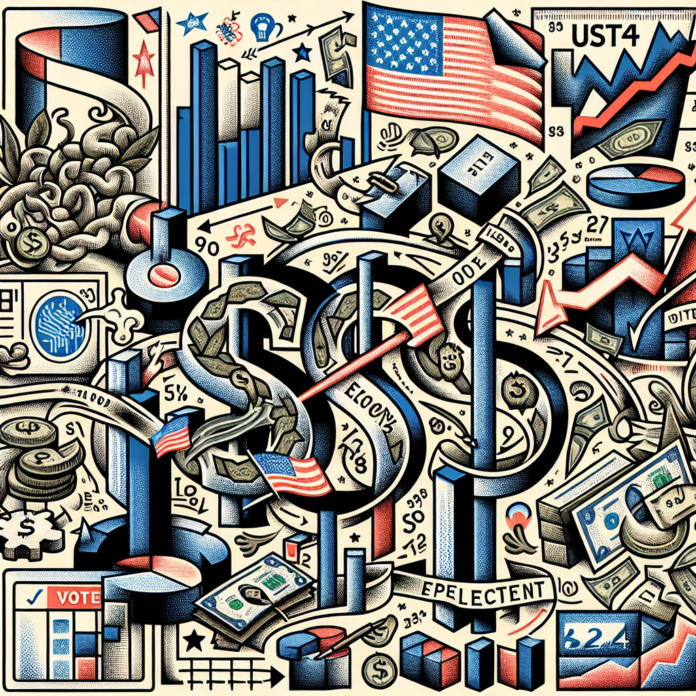Economic Factors and Currency Volatility in the 2024 US Presidential Election on WTHITV.com
Economic Factors and Currency Volatility in the 2024 US Presidential Election
As the 2024 US Presidential Election approaches, economic factors and currency volatility have emerged as pivotal issues influencing voter sentiment and candidate platforms. These economic dynamics are shaping the political landscape, with both candidates and voters keenly aware of the implications for the nation’s future.
Economic Factors at Play
The US economy, still recovering from the disruptions caused by the COVID-19 pandemic, faces several challenges. Inflation has been a persistent issue, affecting the cost of living and reducing the purchasing power of American households. The Federal Reserve has been actively adjusting interest rates to manage inflationary pressures, but the effects of these measures are still unfolding. Employment rates, while improving, reveal disparities among different sectors and demographics, prompting discussions around equitable economic recovery and job creation.
Additionally, the national debt has reached unprecedented levels, raising concerns about fiscal responsibility and the long-term sustainability of government spending. This has become a key topic in the election, with candidates proposing various strategies to address these fiscal challenges. Tax reforms, social welfare programs, and infrastructure investments are central to the debate, each carrying implications for economic growth and stability.
Currency Volatility and Its Impact
Currency volatility adds another layer of complexity to the economic landscape. The US dollar, a critical player in global finance, has experienced fluctuations due to geopolitical tensions, trade disputes, and shifts in monetary policy. These fluctuations impact international trade, investment, and the overall competitiveness of American businesses on the global stage.
For voters, currency volatility translates into concerns about import prices and the cost of goods. Candidates are thus prioritizing policies that aim to stabilize the dollar and enhance the country’s economic resilience. Trade agreements, tariffs, and international partnerships are under scrutiny, as policymakers seek to safeguard the US economy from external shocks.
Additional Insights: The Global Perspective
The global economic environment also plays a significant role in shaping the US election narrative. Emerging markets are experiencing their own economic challenges, and the interconnectedness of global economies means that developments abroad can have ripple effects domestically. The candidates’ foreign policy stances, particularly regarding trade relations with China and the European Union, are crucial in determining how the US navigates these international complexities.
Moreover, technological advancements and the transition to a digital economy are influencing economic strategies. Issues such as cybersecurity, data privacy, and the regulation of tech giants are becoming increasingly relevant, as they have direct implications for economic growth and national security.
The Voter’s Perspective
Ultimately, the 2024 election is a reflection of the American electorate’s priorities. Voters are evaluating candidates based on their ability to address economic challenges and deliver sustainable growth. Economic policies are not just about numbers; they reflect values, aspirations, and visions for the country’s future. As such, the election serves as a critical juncture for determining the direction of the US economy in an era marked by uncertainty and change.
In conclusion, economic factors and currency volatility are central to the discourse surrounding the 2024 US Presidential Election. As candidates present their plans and voters weigh their options, the outcome will undoubtedly shape the nation’s economic trajectory for years to come.


